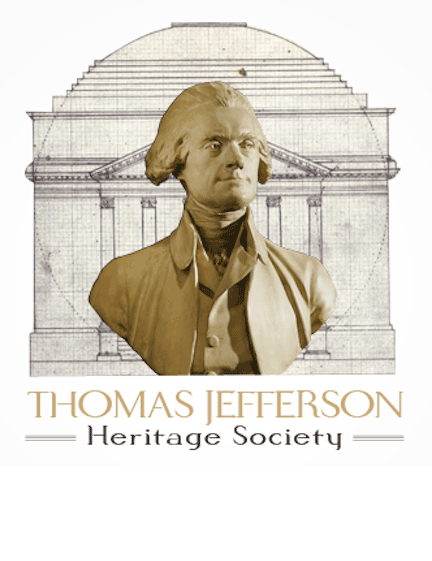History Analysis Unearths Debate
Researchers lack guidelines for testing of long-dead notables
BY A.J. HOSTETLER TIMES-DISPATCH STAFF WRITER Apr 12, 2004
Thomas Jefferson and George Washington aren't around to welcome or complain about technological intrusions into their lives.
Their relatives are.
As medical technology reveals more about the intimate details of our lives, those who would uncover them grapple with increasingly complex ethical issues.
"Biohistory" now encompasses more than medicine's traditional armchair reviews of the lifestyles of the famous, such as Edgar Allan Poe, or the unearthing of Incan mummies buried for centuries, according to bioethicist Lori Andrews of the University of Chicago.
The curious are applying DNA testing and related lab tools to the study of historical figures without guidelines specific to this kind of analysis, Andrews and colleagues wrote in last week's Science.
"A researcher or hobbyist can obtain a strand of hair or spot of blood from a historical figure and undertake bioanalysis," they wrote.
Tests are answering legitimate and dubious questions about the deaths, diseases, behavior and lineage of long-dead notables - Ludwig van Beethoven, Jesse James and Abraham Lincoln - and now the more recently passed on and anonymous. The DNA of at least one Jamestown settler was studied in an effort to locate present-day relatives in England, and Andrews points to the testing of remains in New York's African burial grounds.
"As the PCR process [used in DNA testing] and other super-sophisticated tests are available and used to attempt diagnosis either a genetic illness or disease, . . . very few people have thought of the ethical implications," said Virginia's state epidemiologist, Dr. John Marr, who has written about the sources of biblical plagues and the fatal ailment that felled Alexander the Great after a drunken orgy.
Biohistorical research "could have unforeseen, profound implications" for individuals, as well as ethnic groups, he said. "It will open a Pandora's box on genuine scientific efforts, as well as those of others who have less-noble motivations."
Secrets that died five generations ago may take new life in 21st-century labs.
Descendants' health-insurance premiums may skyrocket when an ancestor's genetic illness is revealed, or they may learn unwanted truths about paternity or mental illness in the family.
"Biohistory by its very nature deals with an identifiable subject, generating information about that figure and often about his or her family," the Chicago group wrote. They examined the social, legal and scientific standards surrounding confidentiality, consent, peer review and public access by 23 professional organizations whose members include archaeologists, forensic examiners, sociologists and museum researchers.
The review showed that the organizations "have very different notions about what is ethical," said Paul Lombardo, a University of Virginia expert in medical-legal history and patient confidentiality.
For example, there's no single standard defining what's recent and what's past, said Lombardo, who believes that ethical considerations given to remains thousands of years old should differ from those for cases in the more-recent past.
Researchers also differ on to what degree of relatedness to consider to extend the ethical considerations, Lombardo noted.
Andrews' review said that at least five codes require consultation with the public or affected populations before the research is undertaken, but that in some cases, potentially affected individuals may veto a project.
"A descendant might argue that her privacy, property and other rights, as well as religious beliefs or cultural feelings, require that she be consulted before testing is done," the Chicago group wrote.
They propose that investigators should disclose the question posed, the type of testing, the level of destructiveness to the artifact and funding sources. If the research includes testing DNA from living individuals, the research should comply with the kind of federal procedures used by hospitals.
Retired U.Va. pathologist Eugene Foster dealt with consent and other ethical issues when he conducted DNA tests on present-day descendants of Thomas Jefferson, and of slave Sally Hemings. After telling participants how he would release the results to them, he was upset when they were leaked to the media first.
News of the Foster research caught Nathaniel Abeles, president of the Jefferson family Monticello Association, offguard. If asked to participate in future research, he said his personal concerns about falsely positive results and motivation would be outweighed by Jefferson's well-documented interest in science and the public's fascination with his presidential forebear.
"Jefferson in a lot of ways belongs to the entire country. The ethics [of doing such research] has to take that into account," he said. "The needs of today are to some degree more important than those of yesterday."
The popularity of solving medical mysteries will only increase as the tools of the trade grow more precise, Lombardo predicted.
Biohistorians are becoming more sensitive to the ethical issues, he said. "We didn't use to think about that at all. We don't know what to do about it, but it's now on the radar."
Contact A.J. Hostetler at (804) 649-6355 or ahostetler@timesdispatch.com

